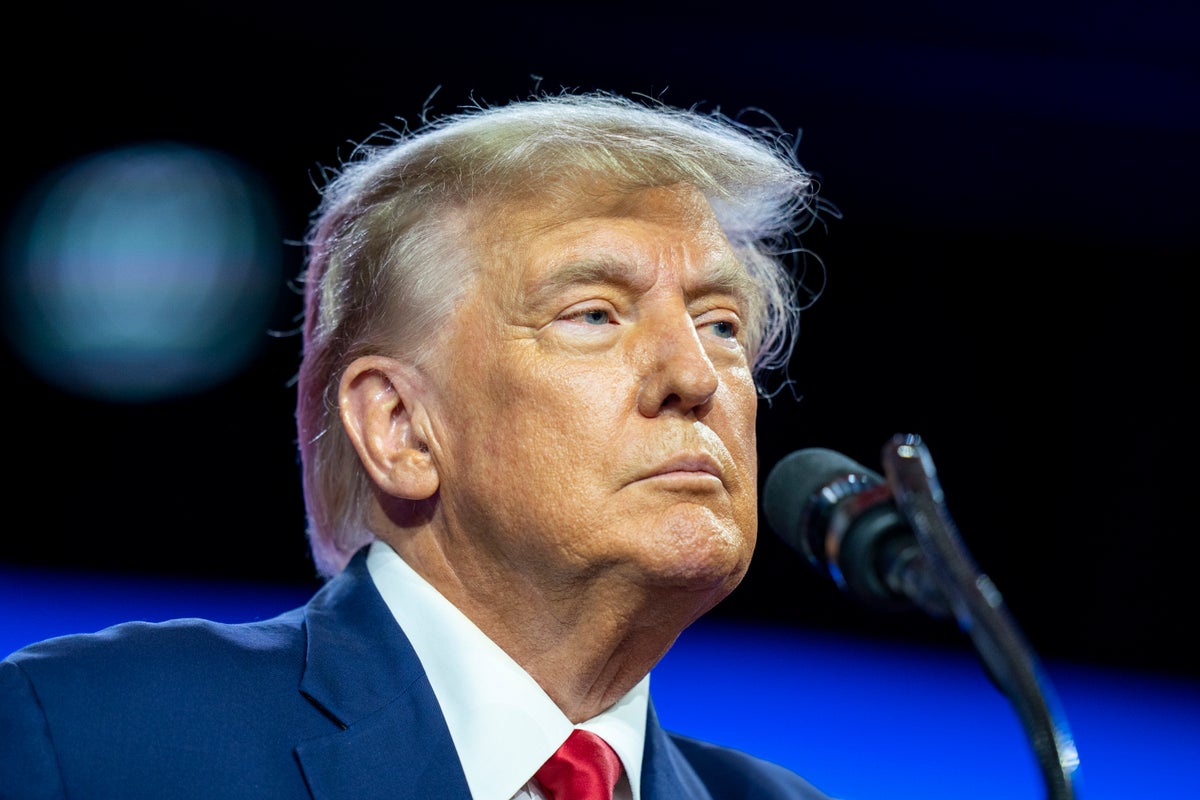
The looming criminal indictment now widely expectecd to be coming down on Donald Trump’s shoulders has left many, including seasoned legal experts and journalists who have followed the justice system for years wondering exactly what to expect when it actually happens.
Sources close to the investigation told Politico on Monday that an indictment could be coming as soon as later that day; a possibility that led to law enforcement officials erecting barricades outside of the Manhattan courthouse where Mr Trump’s arraignment would occur.
Several questions remain about the step-by-step process for criminally indicting a former president, including the logistics of actually carrying out the task of bringing Mr Trump to the courtroom. Some of the decisions are admittedly still up in the air: “We’ll be discussing how we bring Trump in,” one person involved in the planning told Politico on Monday, adding somewhat cryptically: “No decisions have been made yet.”
Many of those questions likely centre around how much of this process will be carried out in person, a time-consuming and complicated endeavour given Mr Trump’s ongoing Secret Service protection and status as an active candidate for the 2024 GOP nomination.
Let’s break down what we do know:
Will Donald Trump surrender, or fight extradition?
His lawyers have indicated that the former is the most likely outcome, should charges actually be handed down. There have been whisperings (and very public urgings from his supporters) in favour of the president doing the latter, but such an effort would likely be unsuccessful and merely add more public spectacle to the already-humiliating drama.
Will he be arrested?
Probably not, unless he were to fight his indictment and refuse to attend his arraignment. In most cases of white collar crime, defence counsel works it out with the DA’s office and the two parties schedule a time for the defendant to come in.
Will he be handcuffed?
Almost certainly not. The crime(s) for which he could be indicted are not considered violent offences, and the former president is hardely considered an escape risk. District Attorney Alvin Bragg has also reportedly been discussing the optics of handling Mr Trump’s arraignment, so don’t expect any attention-grabbing moves like slapping Mr Trump in cuffs.
What about fingerprints and a mug shot?
Yes, and yes. Those are standard parts of the booking procedure and will not be skipped just because of Mr Trump’s celebrity status.
Will he appear in person?
Great question. For the initial booking procedure, yes; that cannot be done remotely. What’s still under consideration is whether Mr Trump will have to be physically in attendance for his arraignment, which he has reportedly discussed as a favourable option, but it’s very possible that Mr Trump’s lawyers will push for the arraignment hearing to occur remotely.
Will he be forced to post bail?
Again, probably not. Should he be formally arraigned without conflict, a judge will likely release him on his own recognisance.
When will it happen?
Most likely Monday or Wednesday. Mr Trump’s prediction of Tuesday is unlikely, given that the grand jury is not scheduled to meet that day.







